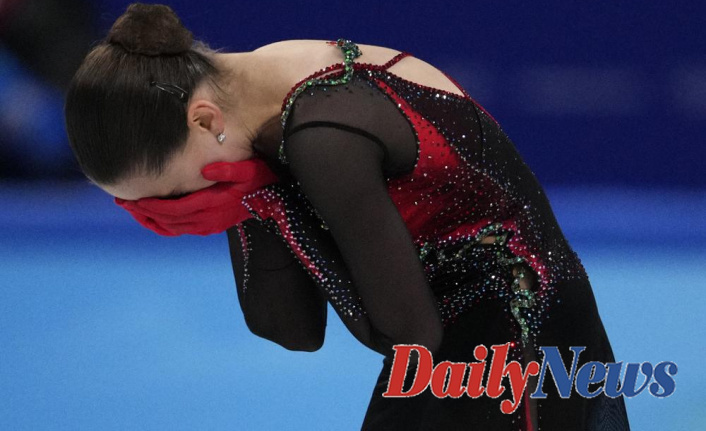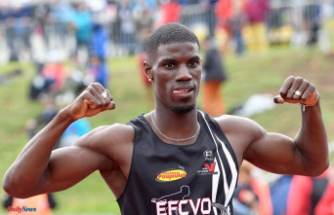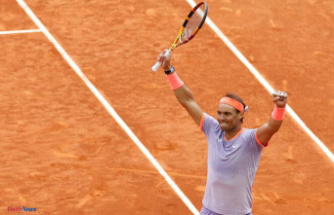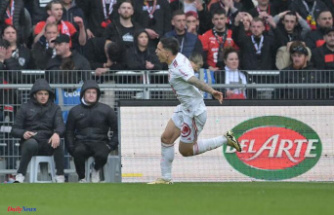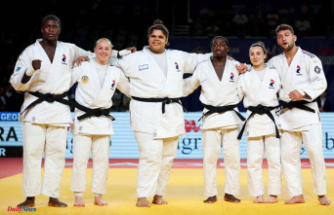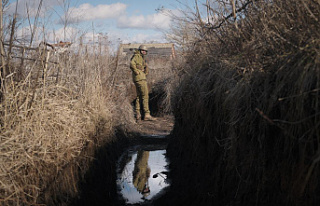It's becoming harder to see the Beijing winter games as they come to an end.
These Olympics were a failure for the network. A buzz-free, hermetically sealed event in an authoritarian nation a half-day away. The enduring images will be of the emotional meltdowns of Russian teenagers following a drug-tainted figure skate competition. Mikaela Shiffrin was also absent, and Mikaela sitting on a slope wondering what happened.
Many American athletes were underperforming, and Eileen Gu, a freestyle skier, competed for China.
NBC must wonder if viewers stayed away in alarming amounts.
Andrew Billings, director of University of Alabama's sports communications program, stated that "Given their investment, they have to be disappointed right away."
Network executives claim that there is no plan to alter or escape the rights agreement. Experts believe that this is unlikely considering how valuable live sports are and how large audiences they can reach to sell beer or automobiles. Gary Zenkel, President of NBC Olympics, speaks optimistically about the future games in Paris and Los Angeles.
Beijing was held in an environment that, like Tokyo last summer, had the primary goal of preventing the spread COVID-19. This meant that there were no spectators or their families, and no funny stories about the host country. There were also no announcers. Most of NBC's staff worked in suburban Connecticut.
Zenkel stated that the host city is a key supporting actor in every Olympics. It's the culture, people, and even sponsor activations. People from all around the globe come together, and that's not (in Beijing), and it's impossible for us to attempt to translate something like this.
On Tuesday, 12.2 million people watched the Olympics on NBC, cable, or the Peacock streaming site. This is a 42 percent decrease from the 2018 Winter Olympics. According to Nielsen, this was a drop of 47 percent for NBC.
This is even with the average that was inflated by airing immediately after the Super Bowl, which attracted 24 million viewers.
Pete Bevacqua, chairman of NBC Sports, stated that ratings are consistent with what they told advertisers. Advertisers are offered packages that include streaming and linear coverage. NBC has yet to say if the Beijing games made a profit.
Thursday's figure skating competition, in which Russian Kamila Valieva competed despite having a positive drug screen and lost any chance of a medal, was a grueling television show.
Twitter one woman declared that the Olympics were "over" for her. My lasting impression is fake snow set against the backdrop of 87 nuclear reactors, in a country that has a terrible human rights record during a Pandemic. Children who are able to look forward for years of therapy.
Mike Tirico stayed with the image of Valieva alone on the ice looking terrified prior to her performance. He said that the adults had left Valieva alone on the ice. "She is portrayed by some as the villain and by others as the victim. In fact, she is the victim of the evildoers.
Billings stated that although there was long-standing corruption in the Olympic bidding process, the Valieva incident tarnished the competition.
He said, "That's even worse for the product."
"This feels like a very vulnerable moment for NBC," said NBC's close associate with the Olympics and television. He spoke under condition of anonymity due to ongoing business ties.
Given the poor performance of Beijing, the person wouldn't be surprised if someone from NBC looked for ways to improve the International Olympic Committee deal. However, the person thought it highly unlikely that the network would attempt to cancel the agreement altogether.
It is still difficult to find live events in prime-time in the United States because of the time difference between Paris and Italy's winter 2026. This will change for Los Angeles in the summer 2028.
Vancouver and Salt Lake City expressed interest in hosting the 2030 Winter Games. The IOC could choose a city to host the 2032 Winter Games. Brisbane, Australia was chosen as the summer 2032 host city last year.
Bevacqua and NBC recognize that there are still many steps to go in order to rebuild an Olympic brand that has suffered over the past six-months.
"I believe we must work with the IOC and the USOPC in many ways to revive the Games that have come out of Tokyo and Beijing, in preparation for Paris and Italy. Bevacqua stated that this was going to be a strategic priority for us.
John Ourand, a media writer at Sports Business Journal, stated that NBC knew from the beginning that the rights deal would be canceled after the pandemic.
Ourand stated that "things are particularly dark now." It is certainly a low-water mark. Two of the next Olympics will be blockbusters, however.
The media industry is experiencing a revolution in entertainment consumption, thanks to cord-cutting and streaming. One of the few reliable ways to get people to watch live sports is through streaming. Although rights fees are increasing dramatically and viewership is declining, very few media companies regret making these investments, according to Neal Pilson (ex-CEO of CBS Sports), who also runs a consulting firm that specializes in sports.
NBC secured the media rights to all games in 2028/2032 at prices that were set in 2014.
Rick Burton, a professor of sports management at Syracuse University who was once the chief marketing officer of the U.S. Olympic Committee, said that "I don’t think they’ll look to get out from it." It's Park Avenue. It's a unique showcase property. It's just a matter of making it more appealing to people who have moved away from television.
This means that we can monetize the different ways people consume Olympic content, especially for young people who are constantly searching on their phones for interesting things. Streaming is increasingly important. NBC has streamed 3.5 million minutes from Beijing so far, compared with 2.2 billion in South Korea. So expect more attention to Peacock.
Zenkel stated, "We are at a point now where you can open an app on you phone or a connected television and have a place that the Olympics are staring down at you in all of their glory." There isn't any piece of content that's undiscoverable."
NBC stated that while European games may not be the best for prime-time TV viewers, they will be more appealing to people who are interested in streaming live events. Peacock will likely have more exclusive content, but this requires a paid subscription. They also see Peacock as the one-stop shop for all things Olympic.
Pilson stated, "I wouldn’t run to claim (the rights deal is not working for NBC) isn’t working for them." Pilson stated, "I think it's working for them and I believe it's better."

